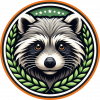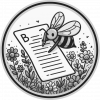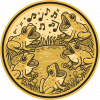There's been a lot of debate on what exactly is a species, and a paper came out in 2001 by Jody Hey which looked at the problem of determining what is a species because of all of the different definitions. I had to read this paper for a class I am taking in graduate school and it got me thinking, how can technology be used to better define what a species is?
With advances in DNA barcoding and related technology, it seems like it should be a relatively easy question to answer, but I'm curious as to what the communitiy's response to this is. Based off of using current technology, what to you is a species?
For instance, here are some definitions of different kinds of species. How does technology change them?
Agamospecies
A species of organism in which sexual reproduction does not occur, represented typically as a collection of clones.
A species of uniparental (asexual) organism
In flowering plants, the term "apomixis" is commonly used in a restricted sense to mean agamospermy, i.e. clonal reproduction through seeds
Biological species concept
defines a species as members of populations that actually or potentially interbreed in nature, not according to similarity of appearance.
A biological species is a group of individuals that can breed together.
"species are groups of interbreeding natural populations that are reproductively isolated from other such groups."
Cladistic Species Concept
is an evolutionarily divergent lineage—a lineage that has maintained its hereditary integrity with respect to other lineages through both time and space.
a species is a lineage of populations between two phylogenetic branch points (or speciation events).
Cohesion Species Concept
A proposal, made by Alan R. Templeton in 1989, to broaden the biological species concept by including asexual organisms and downplaying interbreeding in sexually reproducing organisms.





